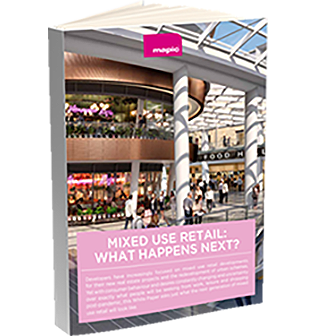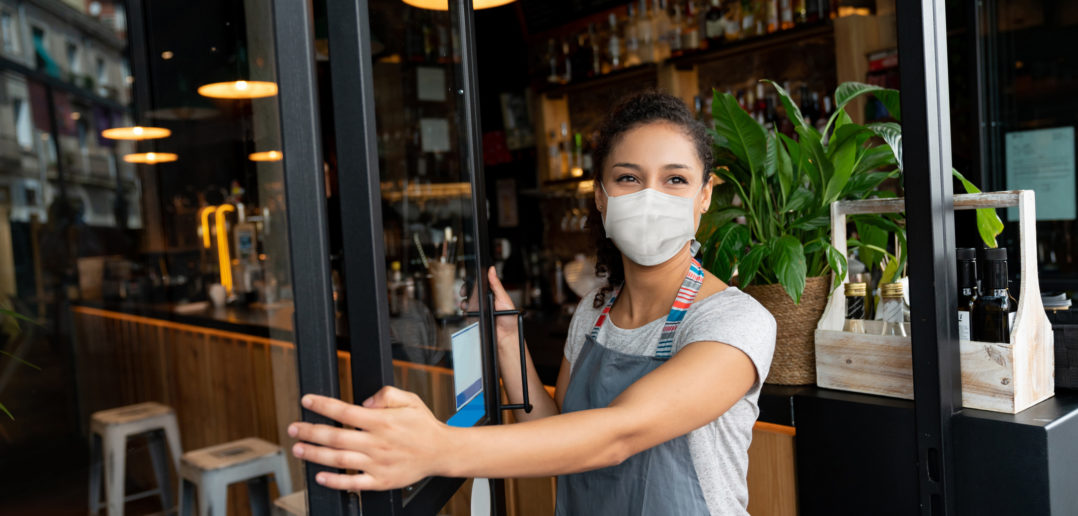In the first of our The Happetite webinars we welcomed Vincent Mourre, CEO and Founder of WhiteSpace Partners Ltd, and Francesco Moneta, Director at Lazard Italy, for our debut “Food for Thought” virtual talk. A discussion followed on the macro consequences of the Covid-19 crisis on restaurant M&A activity: How will restaurant groups continue to consider M&A transactions after the crisis and what are the consequences (development model, transaction multiples, etc) for restaurant M&A activity?
They shared their vision on the expected macro consequences of #Covid19 on the restaurant M&A market and here are their key takeaways on the Covid19 crisis in restaurants:
-
Understanding the new normal
At the time of the webinar, most of Europe was still some way from opening up post-lockdown but as some restaurants and bars open and others prepare, Francesco Moneta reflected that Milan has been at the centre of the European crisis and is responding with radical changes for the food business post Covid.
“A lot of questions remain about how F&B operators manage social distancing,” he said of the impact of the Covid19 pandemic on the food industry. “Clearly, they need to have more space outside to offset the much lower capacities indoors. A lot also depends on the shape of the recovery curve and how long social distancing measures will need to stay in place.”
-
Restaurant M&A activity in hold pattern
Third party investors have, not surprisingly, taken a very cautious approach currently, putting on hold some operations and waiting for the market restart to better assess restaurant chains resilience to the crisis and the impact of Covid on restaurant M&A activity.
Moneta said: “Investors are more cautious. They have questions over profitability at very few are actively looking to deploy capital. The M&A activity before the Covid19 pandemic has been paused and retailers now need to build a new track record post-Covid. Right now there is a slower pipeline and lower valuations. Investors are waiting to see what normal life looks like, whether delivery can be made profitable and how the businesses operate their takeaways and a likelihood of shorter menus for restaurants.”
Vincent Mourre added: “In managing capacity, we might see more staggered meal times.”

Mixed use retail and leisure: What happens next? – White Paper
3. Covid19 restaurant M&A activity
Despite the impact of Covid on restaurant M&A activity, some takeovers of restaurant chain seems to be possible in the next months from investors betting on the value recovery of the chains on the mid/long term and prospects for the food business post Covid.
Moneta said: “This is the time for opportunism. But an investor needs a very clear view of why they are investing – they need to understand the new dynamics.”
-
New metrics for the food business post Covid
Given the impact of the Covid19 pandemic on the food industry, the key element for the long term will be profitability of the chain, much more than its cash and debt position.
“This is a very difficult period and a new world model will emerge,” said Vincent Mourre. “For example, grocery has been very strong in the current situation. This could be a very resilient part of the market and we may see the major operators look to combine F&B and supermarkets.”
Moneta added: “Togetherness will return. The financial value of the brand will become even higher and operators and landlords need to assess and discuss the position together. There must be solutions because this is an industry with a creative DNA.”
-
Quick service restaurants responding rapidly
The food business post Covid will probably experience a faster recovery from Quick Service Restaurants as they have an easier business model and an efficient click and collect service (click and collect will be more relevant than delivery due to higher profitability for the restaurant chain).
Francesco Moneta said: “Quick service operators already have a lean and easier business model, plus a lot of takeaway business already. So they are in a good position to adapt. For formal dining, the situation is exacerbated, lower table numbers and higher prices at a point where the economy is weaker.”



![[NEW] MAPIC interview: In conversation with Tobias Karlsson, Global Real Estate Director, KIKO Milano](https://www.beyondretailindustry.com/wp-content/uploads/2024/05/MicrosoftTeams-image-44-5-351x185.jpg)
![[NEW] MAPIC interview: In conversation with Giovanni Porcu, CEO and founder of Doppio Malto](https://www.beyondretailindustry.com/wp-content/uploads/2024/03/DM-Magenta_1-351x185.jpeg)